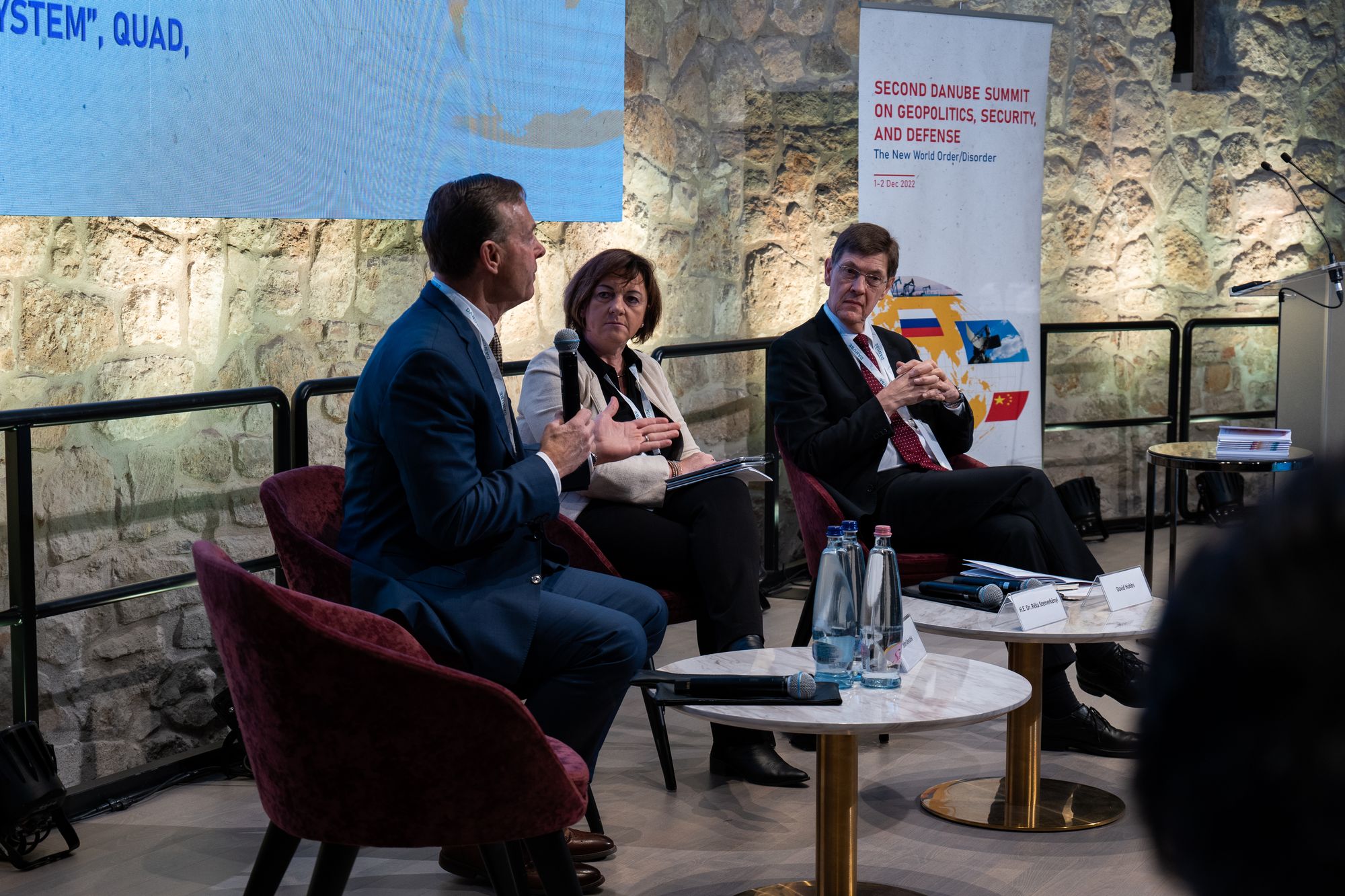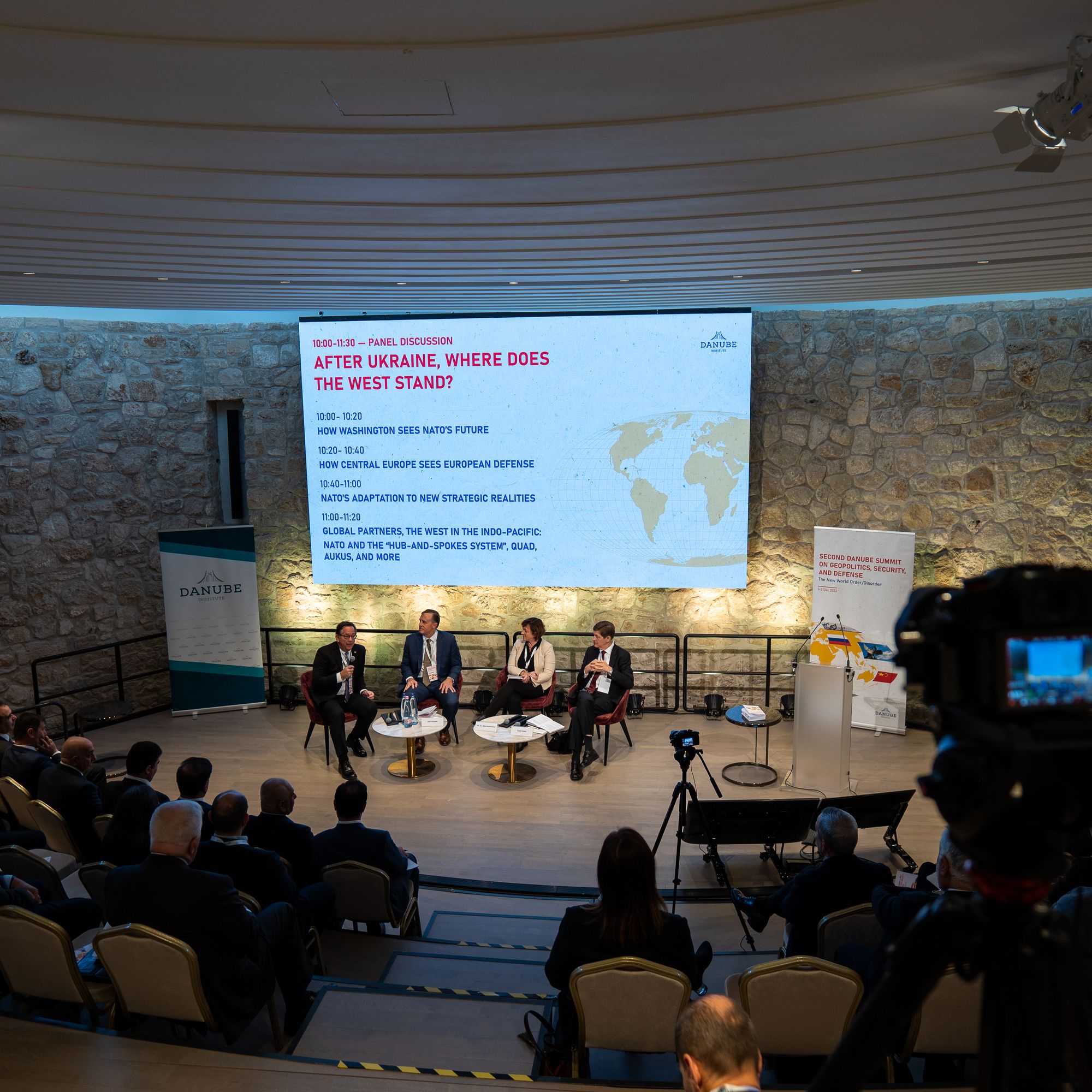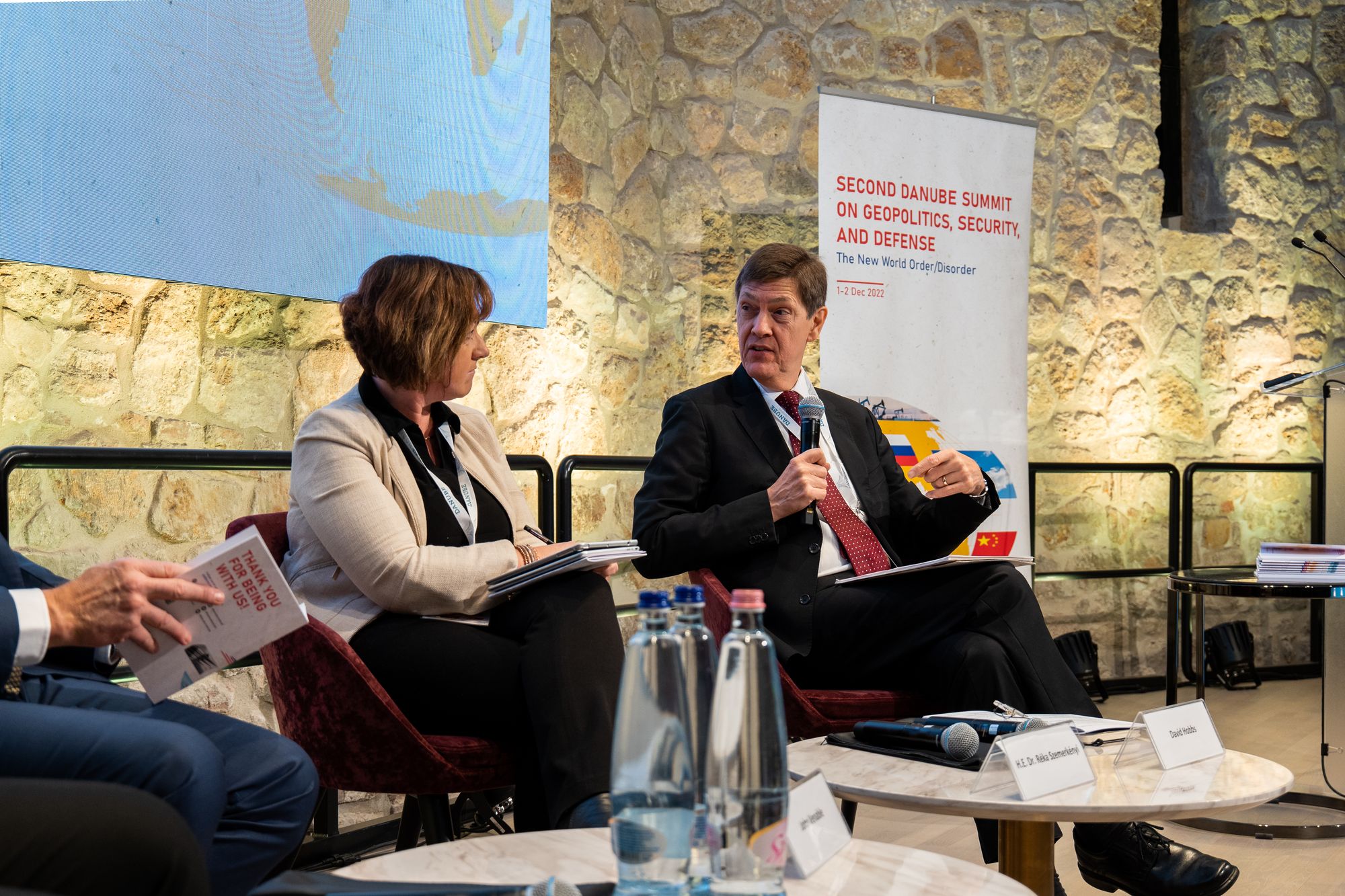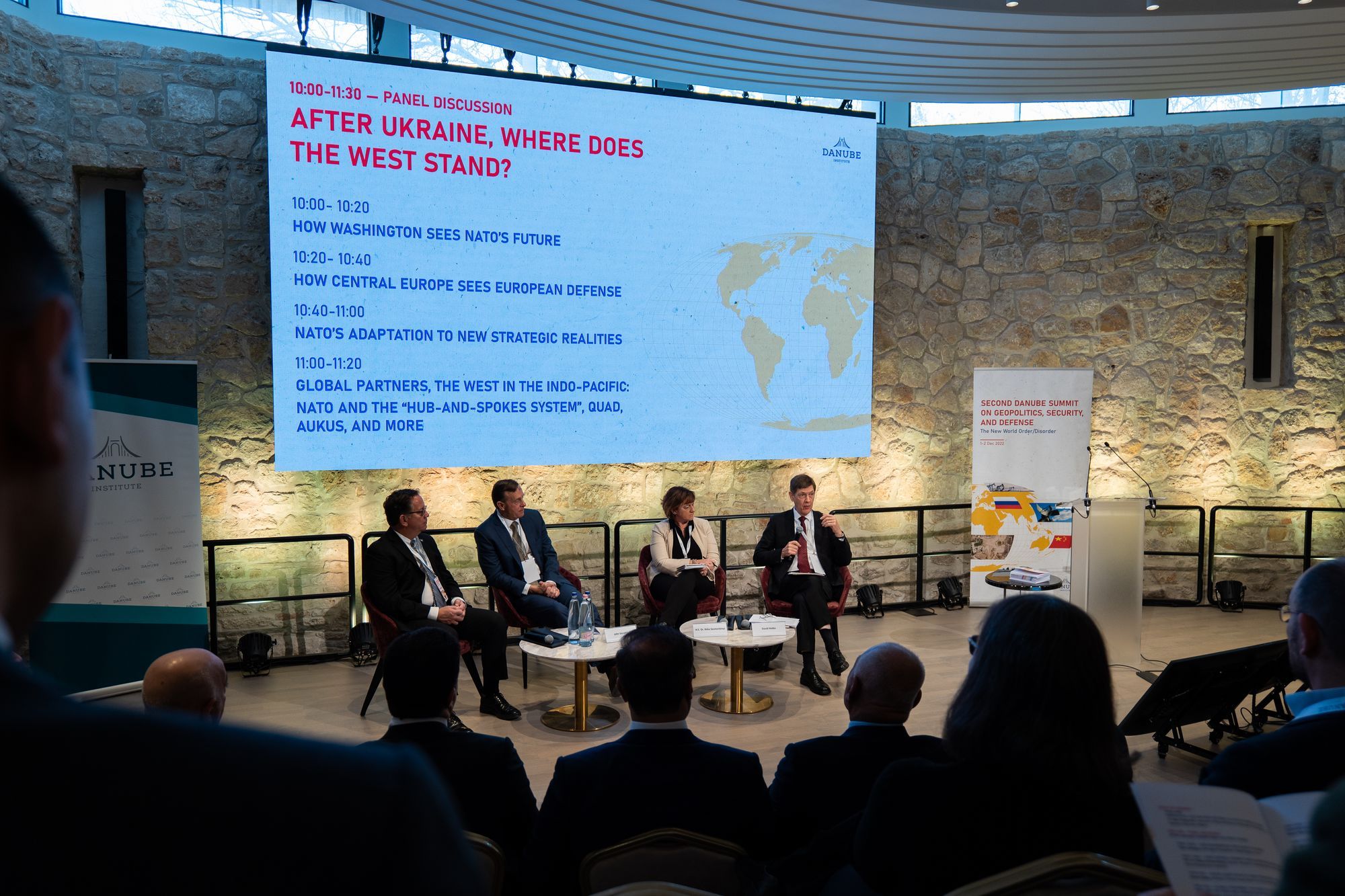What can the West expect after the invasion of Ukraine? What is the role of Central Europe in international organizations today? In what aspects is the current situation different from the Cold War? These questions were addressed in the „After Ukraine, where does the West stand?” panel discussion at the Danube Institute’s Second Danube Summit. The participants were John Venable, a veteran of the U.S. Air Force; S. John Tsagronis, professor at the Institute of World Politics in Washington; David Hobbs from the Atlantic Treaty Organization (ATA); and Réka Szemerkényi, former Hungarian ambassador to Washington. Conference coverage from Hype&Hyper.
John Venable said in the beginning that the US remains a strong NATO supporter, but the amount of available resources has changed: the US military arsenal is smaller than most of the world thinks. Washington’s military help for Ukraine to stop Russia has already been enormous, but the Western partners tend to expect virtually endless support. Venable believes that the US needs to reconsider the extent of supplying arms to other countries, as they also need to think of themselves now. He added that there is a huge gap in military strength and resources between the US and its partners worldwide, who must catch up to some extent. Nonetheless, the reason Washington does not provide certain military equipment is not that it does not want to but because it is unable to.

S. John Tsagronis agreed with Venable and added that the main issue is that Washington has no clear Ukraine strategy. The US has no defined goals in this war; there is no strategy for how long Ukraine shall be supported, and they do not know when the war will end. The lack of coherence and consistency in Washington is worrisome, and there is a legitimate fear that the US will eventually stop its support.
According to Réka Szemerkényi, Ph.D., dialogue between the parties would be crucial at this moment. She stressed that the Russian crisis started much earlier than February 2022; it has its roots in past events. Central and Eastern Europe (CEE) has long been aware of the threats: the countries in the region reorganized their defense strategies years ago, became more active in NATO, and carried out strategic analyses. CEE has adjusted its foreign policy with NATO; all countries know well how valuable NATO is. The shift happened gradually, and it was visible at a regional level, not just in Poland and the Baltic states. But a new chapter opened in February 2022: CEE became even more active in NATO, initiating new ideas and strategies. Central and Eastern Europe (CEE) has been sidelined for three decades, but the time has come for the regional countries to shape their own destiny. They are not the Western alliances’’ subordinate partners anymore.

Szemerkényi has mentioned the events of the 1990s before addressing what the future holds. The ’90s were paramount for CEE’s geopolitical strategy, and the values and orientation of the region became clear during that period. The cores of Central and Eastern European values are democracy, the free market, competition, and freedom of speech. Another key goal of CEE in the ’90s was accession to major Western international organizations, such as the EU and NATO. Of course, this did not happen overnight, but the ambition was clear from the beginning. Szemerkényi refers to the past three decades as the „golden era between strategic confrontations” and believes that now almost everyone sees that China’s rise should be addressed. Central and Eastern European countries are now members of the Western international organizations where the countries should jointly face the challenges of the present and the future. Therefore, resilience is necessary and regional countries should take an active role in finding solutions and shaping the future.
David Hobbs added that the accession of CEE to NATO was also significant for the alliance. He believes that the adaptation of NATO has been very successful due to its core values, such as democracy, freedom, and the rule of law. Today the most serious threat to NATO’s safety is Russia, and the relevance of military defense is growing. NATO members are now being forced to compensate for decades of underinvestment in defense; the alliance’s direction is good, but there is still much room for improvement. Regarding the Russo-Ukrainian war, Hobbs added that NATO support for Kyiv is extremely crucial, but the alliance must also face the fact that Putin’s hostility towards Ukraine will neither diminish nor disappear soon. The Russian president strongly opposes any democratization in Russia. The war must end, but the outcome does matter a lot, and the plight is complex and challenging. And an autocratic regime can mobilize many forms of its power to undermine Western democracy and societies.

S. John Tsagronis reiterated the importance of clear guidelines in US politics, which he believes do not exist, for instance, in the case of Ukraine. He also mentioned the US foreign policy principle of „strategic ambiguity” regarding Taiwan, which is, as its name suggests, quite ambiguous. During the Cold War, the Soviet Union was undoubtedly the biggest threat to the West; all other international relations were secondary compared to the relationship with the Soviets. But the picture now is way less clear: Tsagronis believes that it is very challenging to prioritize the many issues as a US President or Senator nowadays. Nonetheless, he added that the US is not in decline, it is merely in retreat, and the two are fundamentally different.
Szemerkényi stressed the success of the international organizations in reaching a consensus regarding the Russian invasion almost immediately, which surprised Moscow. This step has laid down the foundations of a new kind of cooperation. Nonetheless, she highlighted the role of time. The immediate international response to the Russian aggression was morally right, cooperative, cohesive, and adequate from a security point of view, but time can challenge this unity. Still, she believes that in the present situation, the current approach has no alternative.

I will draw even brighter than before! | Interview with illustrator Nina Dzyvulska











